This afternoon I made a cup of yaupon tea from the leaves of one of the shrubs that’s growing in my backyard. As I write this I think that the caffeine buzz has begun to hit me. Yaupon holly, a relative of Yerba Mate, is the only native North American plant that contains caffeine.
Yaupon has the unfortunate scientific name of Ilex vomitoria. According to Charles Hudson, in his introduction to the book Black Drink: A Native American Tea, the scientific name derives from yaupon’s association with purification ceremonies that involved ritual vomiting. But the tea of yaupon itself, at least when drunk in moderate amounts, does not cause vomiting.
I first tried making yaupon tea last fall and while I made a tasty tea, I didn’t experience the caffeine high like I am right now. I did three things differently this time. First, I only cut new, lighter green growth, not mature growth. Second, I mashed the leaves in a mortar and pestle prior to roasting. And third, I roasted the leaves for 8 minutes at 300 F instead of 8 minutes at 400F.
After roasting the crushed leaves and allowing them to cool for a few minutes I crumbled enough of them to fill one TBS. Then I steeped these leaves in one cup of boiling water for five minutes. The resulting beverage had a light green color, much like green tea with a grassy aroma. The infusion did not have as much body as a green tea but was not weak either. I found it refreshing and without the bitterness of yerba mate. It had just a hint of roasted flavor; not too much to overpower the other flavors. About twenty minutes after drinking it, an almost euphoric caffeine effect began.
Yaupon has the additional benefit of being a great landscape plant in Austin and much of the south and southeast. I’m slowly growing a hedgerow along the back fence that will also provide me with an occasional alternative to coffee.
Important Note: Eric Toensmeier has some good advice in his book Perennial Vegetables about trying new foods: “Some caution is in order when trying new food for the first time. You can never be entirely certain how your body is going to react. … You can never know if you are going to be allergic to a new food. Even such ordinary foods such as corn, soybeans, and peanuts can cause serious allergies in some people. When trying a new food plant it is prudent to proceed slowly, particularly if you are prone to food allergies.”

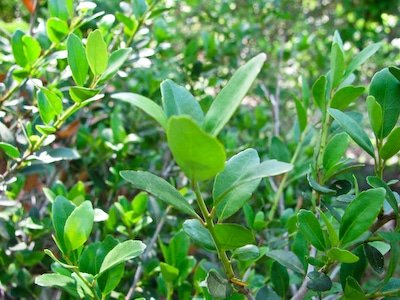
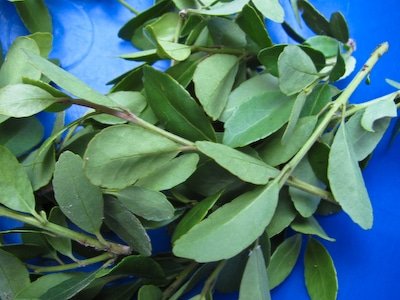
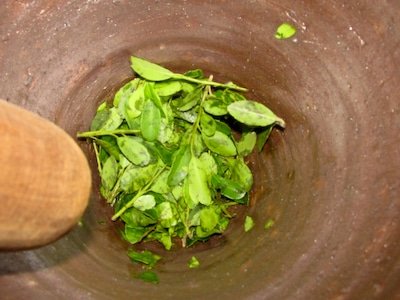
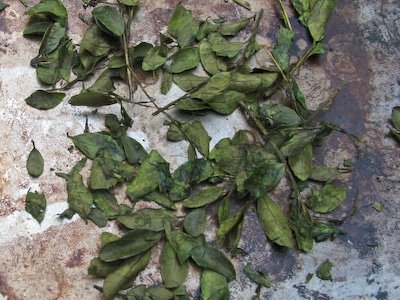
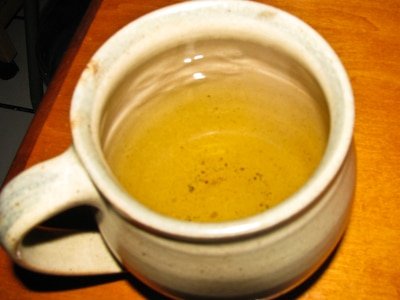
I first rinse, then let air-dry my yaupon before roasting. I roast my yaupon on a cookie sheet (actually on two. a friend has many yaupon trees on his property, incl. the weeping variety) until all the leaves turn brown or black. You have the proper roasting temperature but don’t bother with timing, as leaves of differing sizes roast different rates. Thus you’ll have a dark tea without any of the ‘green’ taste to it with all the anti-oxidents & caffiene you can handle. Tastes so good I use it a coffee substitute when I go camping. Better than coffee, I never use sugar or a coffee flavorings with it; it taste great without the added condiments.
I too roast the leaves and twigs on a cookie sheet till brown, about ten minutes in a convection oven at 375 degrees F. The leaves I collect are wild, I brew them in a ratio of one cup of crushed roasted leaves to a quart of water, boiled for 45 minutes. The resulting decoction is about the color of Coca Cola, and not unpleasant to taste. I use it with sugar as a performance enhancer on bicycle rides, and am convinced it works.
Please let me know where I can find the tea. I live in Arizona and can’t grow it here. It’s hard to grow anything here because of the heat. I hope you can help me with my search. Thank You
Rebecca,
The only yaupon tea that I’ve drunk has been what I grew and roasted myself. It might be available, but I think that its unfortunate Latin name hinders its commercial viability.
I am doing some research on this tea and was wondering if it can be prepared and stored easily. If so does it still retain the caffeine?
Greg,
I don’t know how how the shelf life is for Yaupon Tea, but if it is similar to Yerba Mate, it should last for one to two years.
Yaupon grows wild in the south and southeast coastal areas, and a number of varieties ate available at nurseries. I have read the weeping form ‘pendula’ has a higher caffeine content of the types tested.
Yaupon also stores very well, losing little flavor, caffeine or antioxidants if stored in a sealed jar.
Geoff,
Great article on yaupon preparation! Our young company offers a green yaupon tea (with limited oxidation) and a more fully oxidized black yaupon tea. Our black yaupon tea is most similar to your preparation here.
Do store the tea in an air tight light proof container for longevity. Caffeine is soluble in water, so limiting exposure to humidity is important.
Please check out CatSpringTea.com for details about our yaupon tea – we’re in Austin, too!
JennaDee,
I look forward to checking out your teas. I didn’t have to worry about storage, as I made a small batch that I brewed over the next few days.